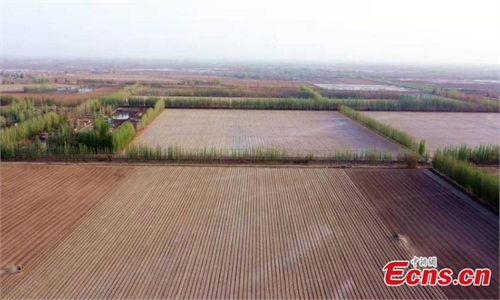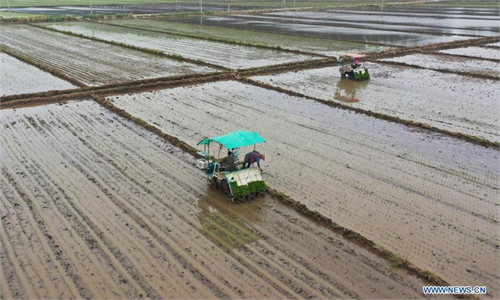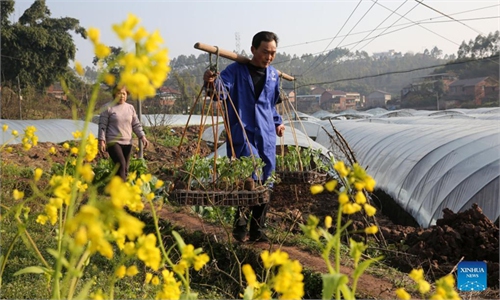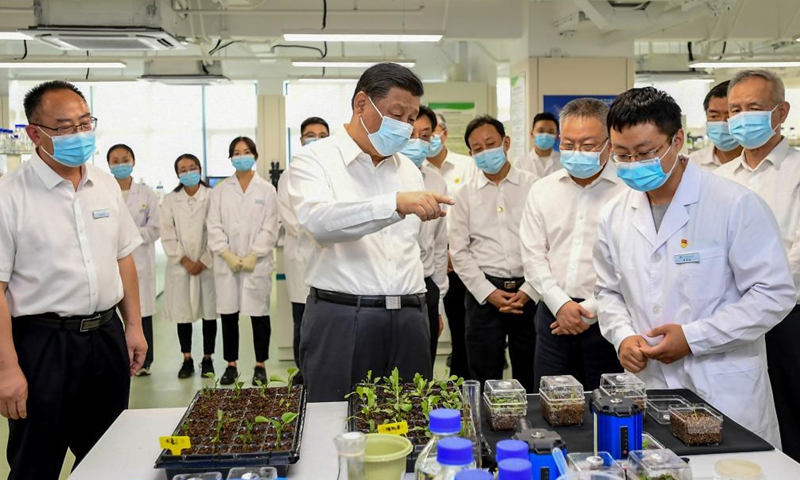
Photo:Xinhua
President Xi Jinping visited a seed laboratory in Sanya, South China's Hainan Province on Sunday, where he reiterated that China's grain security should be ensured with Chinese seeds.
President Xi visited Yazhou Bay Seed Laboratory to learn about seed industry innovation, the Xinhua News Agency reported. During the inspection, Xi stressed the role of seeds in ensuring grain security for the world's most populous country, Xinhua reported.
To fill the rice bowls of the Chinese people and ensure the country's grain security, China must hold seeds fast in its own hands, Xi said. He urged efforts to pursue agricultural technological breakthroughs to achieve self-dependence in the seed sector, which is a heavy task with strategic significance.
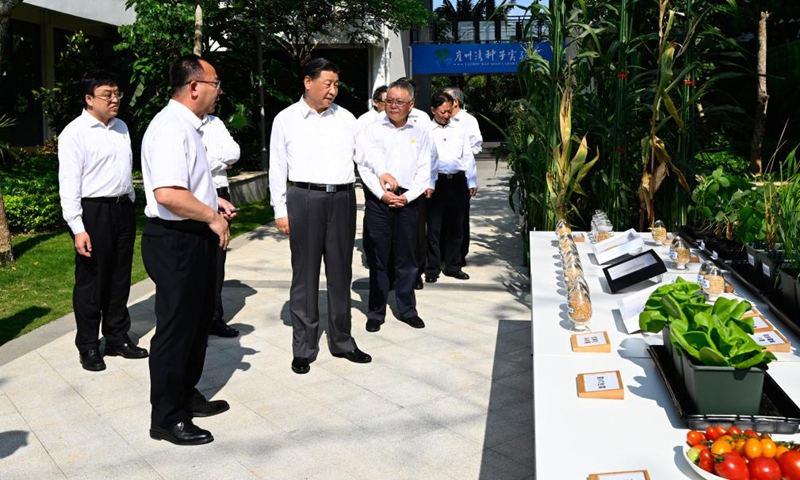
Photo:Xinhua
President Xi has raised this issue on multiple occasions, shedding light on where China's seed industry is heading.China has basically achieved seed self-sufficiency for two of its staple grains - rice and wheat. However, in terms of corn, another staple in China, the country remains partially dependent on imported seeds as the country's corn breeding capabilities still lag behind international standards.
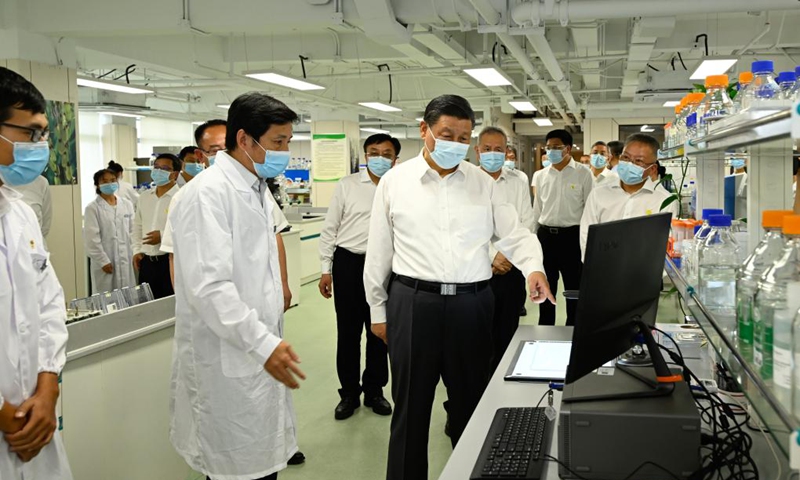
Photo:Xinhua
Industry observers said that China lags in the set-up of complete genetic resources and gene-editing technology, but China has lately made great efforts in catching up with foreign peers in the aspect.
In February, China released the No.1 Central Document, which set technological breakthroughs in seeds as a priority. This is the second consecutive year that the central government has put such high an emphasis on supporting seed development, including biotech seeds.
It's also important to connect with downstream enterprises to participate in the study and research process to better integrate industrial applications with the research process, Jiao Shanwei, editor-in-chief of cngrain.com told the Global Times on Monday.
Chinese agricultural experts have been implementing measures and efforts to study technologies such as gene technologies, but some core technologies are still controlled by foreign companies, said Jiao, noting that the industrial applications have made remarkable progress over the past years thanks to government support.
As for strengthening seed IP protection, Jiao noted the urgency and importance to enhance the protection for crops that have specific advantages in China such as rice, with related technologies and storage capacity for their genetics, while increasing the using efficiency of these crops for future research.
